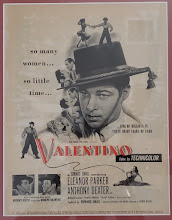I actually like the song. It's catchy, though the chorus sounds like "fallin'" instead of "folded" and lyrically its confusing as hell. They're French, I'm from Texas, misunderstandings are to be expected, but it's a nice, simple, catchy pop song and who knows, it may actually help sell Cadillacs. It struck me as something bigger than a good song for car commercial, not because it has any particular artistic significance, but because of what it indicates to me in a marketing sense.
Several years ago, when Elvis and Johnny Cash and The Rolling Stones and The Beatles songs first started appearing in jingles old hippies everywhere must have been cringing with disgust at the crass commercialism of it all. Even anti-establishment icons like Neil Young, Joan Baez and Bob Dylan have gotten airplay in advertising. Elton John, Lionel Ritchie, Sting, U2 and KISS were obvious choices as pop artists for advertising; they always seemed as much interested in commerce as art. Today, a relatively unknown band (Phoenix has never had a Top 40 hit) is actually selling music based on being in a Cadillac commercial. Surely this says something about the intersection of art and advertising and culture, but damned if I know what that might be.
I can tell you what it means to me. It means that tail end baby boomers like me are nearing the end of their demographic power. It wasn't that long ago that every commercial resonated with me, and though I would deny it if asked, Mick Jagger wailing about "can't get no satisfaction" at the very least caught my attention and at the very most made me think the product being advertised was gloriously cool. And more importantly, they were pitching to me and my peers. Now? ... not so much.
Having been at the center of the advertising demographic target for the past 20 some-odd years, and recognizing the end of my run as a prime target, I can speak with some authority about how being catered to skews your perspective. It's all a bit shocking when the "new thing" makes no sense and you realize that the advertiser isn't talking to you anymore. It seems that when generations slip from the center they start grabbing for the foundations of their life, and principles become more important than fashion.
My time as the center of attention seems wasted; I should have gotten more out of it. That is probably how most people and most generations feel about it, because things seem to have changed without reason. One day your lusting after an Oldsmobile 454 then boom, you're shopping for cars and comparing the miles per gallon. It's sobering to think that your individual purchasing decisions have influenced, however minutely, the direction of something as vast as the automobile market. It's hard to connect the dots from muscle car to turbo diesel, but they are there.
Having a perspective from outside the target zone, after so long in the crosshairs, is somewhat refreshing. Drifting from the center of attention makes it easier to recognize the loss of power and be more objective about things. Decisions in retrospect are much easier to categorize as rational or emotional, practical or extravagant, honest or expedient. Looking back also leads to "old timer's syndrome," when memories of the past make the present seem shoddy ... like Paris today compared to 1901.

No comments:
Post a Comment